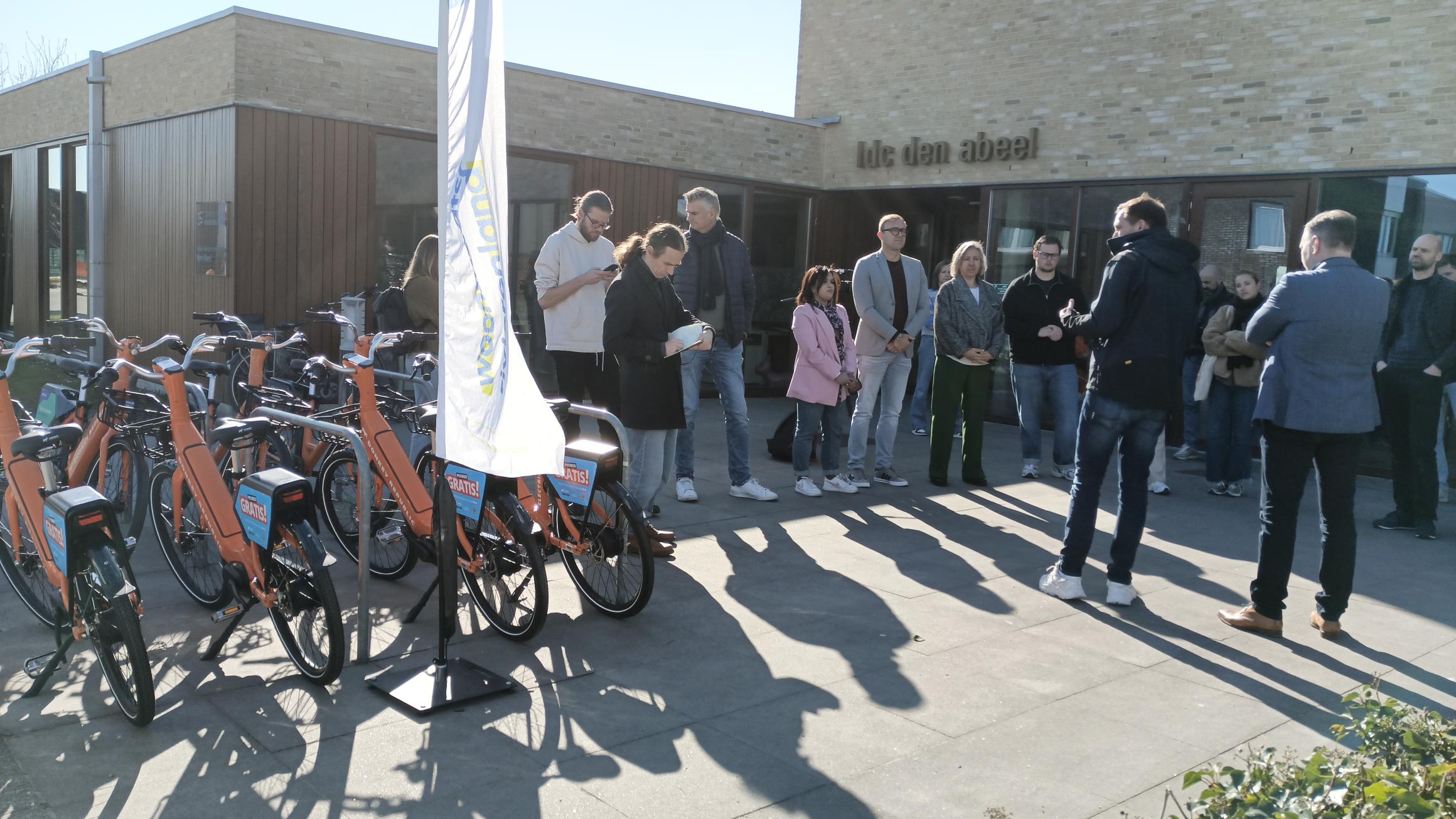The SHARE-North Squared project is all about bringing shared mobility into housing developments. That includes not only hotspots where yuppies live, but also social housing neighbourhoods. Woonland from Mechelen plays a pivotal role in this. We therefore interviewed Kristof Penders and Jurgen Mommerency to learn more about how Woonland introduces shared mobility in social housing.
Welcome, Kristof and Jurgen!
Can you briefly introduce Woonland?
Jurgen | Woonland is an organisation focused on social housing. We strive to provide affordable and sustainable living solutions for our residents, ensuring they have access to quality housing and mobility options.

Jurgen Mommerency & Kristof Penders from Woonland social housing
How did you get involved in the SN² project?
Jurgen | We had previously participated in a North Sea Region project with the City of Mechelen, aimed at reducing CO2 emissions. When one of the partners withdrew, they were looking for a replacement, and we saw a great opportunity to contribute. While these projects require significant effort, we believe the benefits outweigh the workload, which is why we decided to participate.
What do you hope to achieve with this project?
Jurgen | Our goal is to help social housing residents reduce their dependency on privately owned cars and shift towards shared mobility options. However, there are significant challenges. For example, some of our developments require underground parking spaces by regulation, but many of our residents do not own cars. This results in underutilised parking spots, showing that shared mobility can be a valuable alternative.
Additionally, the City of Mechelen requires us to provide shared mobility solutions, which is another reason why we wanted to learn more about shared transport options.

Shared bikes at the Local Service Center 'Den Abeel', located in Mechelen's Ghandi neighbourhood. The Ghandi neighbourhood is one of the SN²-pilots.
What is your biggest contribution to SN²?
Kristof | An important contribution of ours is that we focus on groups who are not among the early adopters of shared mobility. More specifically, we have identified three target groups for this project:
Social buyers – We are exploring whether they can get rid of their second car and what incentives might encourage them to do so.
Elderly residents – We are conducting surveys to understand their mobility needs.
Families – We are examining which mobility solutions, such as cargo bikes or scooters, could work best for them instead of shared cars.
The City of Mechelen, together with Way To Go, conducted surveys among these groups, and we are proud of the data we have gathered. Other cities are now using our findings, making us an interesting model to replicate elsewhere.
What are you currently working on?
Kristof | Our first planned project was meant to take place on the Draaibankstraat. Unfortunately, it was blocked by the homeowners' association. Despite this setback, we continue to explore alternative solutions and locations.
Have you learned any valuable lessons so far?
Kristof | We have gained a lot of valuable insights, such as the concept of mobihouses (*) and the development of mobility hubs. We aim to integrate these ideas into our projects. We are also keen to learn from universities and their mobility analyses.
Jurgen | We see ourselves as both a sponge, absorbing knowledge, and a pioneer in the social housing sector. As far as we know, no other social housing developers in Belgium are actively working on shared mobility solutions.
As far as we know, no other social housing developers in Belgium are actively working on shared mobility solutions.
What challenges do you continue to face?
Kristof | One major challenge is the lack of awareness about shared mobility. For example, many people overestimate the costs of car sharing. "Unknown means unloved" – people tend to be skeptical about what they have not tested yet.
Jurgen | Another issue is that we have to finance and provide shared cars ourselves, which means it takes some time to reach a break-even point. However, we want to make sure our residents can afford to use these services by keeping subscription costs low.
Kristof | One solution that has proven effective is offering trial periods where people can experience shared mobility firsthand. This helps break down misconceptions and encourages adoption.
Thank you Kristof and Jurgen!
Want to learn more about how Woonland is piloting shared mobility solutions in social housing? Our webinar might provide the answers you are looking for.
Or read the press coverage by the local Flemish media in Gazet van Antwerpen and Het Laatste Nieuws.
Interview by Steffie de Moor (Mpact)
Edited by Jelten Baguet (Mpact)
(*) Mobihouses are 'parking towers' designed with future adaptability in mind, allowing them to be transformed into different uses, such as apartments. During construction, factors like ceiling height and accessibility are considered to facilitate this potential conversion.
